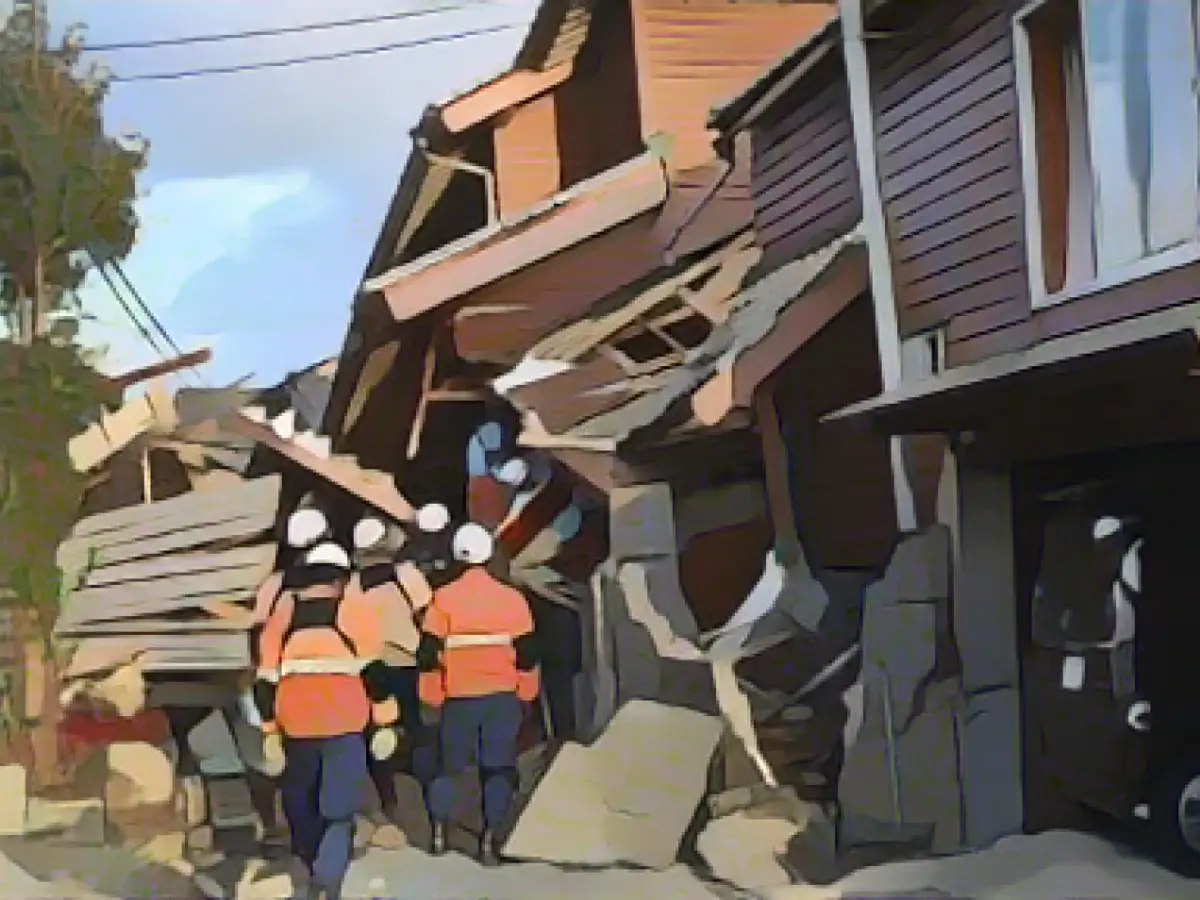Death toll in Japan earthquake rises to at least 62
Meanwhile, the authorities warned of dangerous weather conditions in the earthquake zone: heavy rain and possible landslides are expected throughout Ishikawa Prefecture on Wednesday.
The main Japanese island of Honshu was shaken by a severe 7.5-magnitude quake and dozens of aftershocks on New Year's Day and hit by tsunami waves. Hundreds of houses on the Noto peninsula in Ishikawa Prefecture collapsed or were damaged. Roads became impassable and a major fire destroyed a historic market district in the town of Wajima. Further aftershocks were recorded on Tuesday, but the tsunami warning issued on Monday was lifted.
However, the number of victims of the earthquake is likely to rise further. Ishikawa is a rural region and numerous roads were destroyed after the quake. According to the television station NHK, many more people could be buried.
Almost 34,000 homes in Ishikawa Prefecture were still cut off from the power supply on Wednesday, according to local utility companies. In several towns, residents had no running water in their homes.
Head of government Fumio Kishida spoke of a "race against time" on Wednesday following a meeting of the crisis team set up after the quake. The number of rescue workers was being increased further and the aim was to "do everything possible to save lives".
Japan is located on the so-called Pacific Ring of Fire, where tectonic plates collide. The country is shaken by hundreds of earthquakes every year, most of which cause hardly any damage. A massive undersea quake of magnitude 9.0 triggered a devastating tsunami wave in March 2011, killing around 18,500 people. The tsunami flooded the Fukushima nuclear power plant and led to the worst nuclear accident since the explosion at the Chernobyl nuclear power plant in 1986.
After Monday's quake, the Japanese Nuclear Regulation Authority reported no unusual incidents at the Shika nuclear power plant in the affected Ishikawa prefecture or other nuclear facilities in the country.
Read also:
- This will change in December
- Fireworks and parties ring in 2024 - turn of the year overshadowed by conflicts
- Attacks on ships in the Red Sea: shipping companies avoid important trade route
- Houthi rebels want to launch further attacks despite international coalition
The earthquake in Japan occurred on the main island of Honshu, affecting Ishikawa Prefecture specifically, where the AFP reported at least 62 deaths. The severe quake and subsequent tsunami waves caused numerous casualties, with hundreds of houses on the Noto peninsula collapsing or getting damaged. The local utility companies reported that almost 34,000 homes in Ishikawa Prefecture were still without power on Wednesday.
The head of the Japanese government, Fumio Kishida, described the situation as a "race against time" and promised to increase the number of rescue workers to save lives. Meanwhile, there were warnings of heavy rain and possible landslides throughout Ishikawa Prefecture, which could potentially add to the number of casualties not accounted for yet.
In addition to the damage caused by the earthquake and tsunami, the region also faced further challenges with impassable roads and a lack of running water in homes in several towns. The Japanese Nuclear Regulation Authority reported no unusual incidents at the Shika nuclear power plant or other nuclear facilities following the quake, ensuring public safety in these circumstances.
Related articles:
- This will change in December
- Fireworks and parties ring in 2024 - turn of the year overshadowed by conflicts
- Attacks on ships in the Red Sea: shipping companies avoid important trade route
- Houthi rebels want to launch further attacks despite international coalition
Source: www.stern.de
Source: www.stern.de







